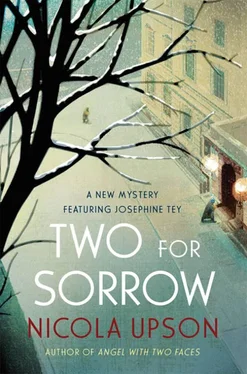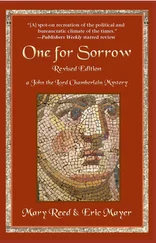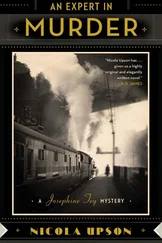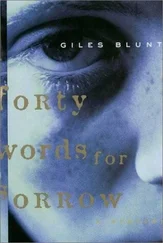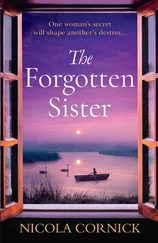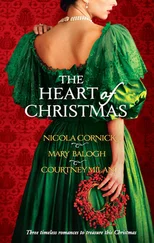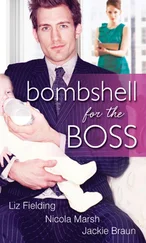‘Then I can see why you haven’t unpacked.’ She chose a box next to the fireplace and sat down. A fire was already laid in the grate—the only impression that Mrs Snipe had been allowed to make on the room as yet—and Archie threw her some matches to light it.
‘That’s just the beginning,’ he said, carefully uncorking the bottle. ‘There are three other cases on the go, not to mention a load of extra paperwork. It’s always the same after a general election—they want to reassure people that they’re safe in their beds so we have a complete overhaul of all the procedures, only to carry on in exactly the same way.’ He sighed and gestured towards the boxes. ‘So it might be some time before this lot gets sorted. I think I’ll just wait a month and assume that anything which hasn’t surfaced by then is surplus to requirements. That way, I can give all the unopened boxes to the deserving poor. We’ll let this breathe in the glass, shall we?’
Josephine nodded, and held both drinks while he pulled another box up to the hearth. ‘Do you want some help?’ she asked, glancing round at the chaos.
‘God no—let’s just enjoy a drink. I’m spending so little time here at the moment that it hardly matters.’
‘Well, start by opening this,’ she said, handing over the flat, square parcel. ‘At least the walls are peaceful—you might even be able to see it.’
Intrigued, Archie unwrapped the brown paper and stared in delight at the painting, a delicate watercolour of a lake surrounded by woodland and the perfect likeness of his home in Cornwall, where he and Josephine had spent some time together during the summer. Regardless of its personal meaning, the painting was superb and the artist—like all the best watercolourists—had made the medium look deceptively simple. The minute detail of the trees contrasted with spontaneous washes of colour for the sky and the surface of the water and, looking at it now, Josephine felt as though she would sense the magic of the place even if she had never been there.
‘Loe Pool!’ Archie exclaimed. ‘Where on earth did you find this?’
‘I got it while I was there,’ she said, pleased that he liked it so much. ‘There was a painter on holiday—he was staying in the village, but he was by the lake whenever I went for a walk; I must have seen him do at least fifteen pictures. I pestered him to let me buy one, and eventually he agreed—just to get rid of me, probably. It came back from the framer this afternoon.’ She watched his face as he looked down at the painting, and knew that he was thinking about the tragic events that had taken place there just a few months earlier. ‘I thought it might help to remind you of how beautiful the place is,’ she added gently, ‘and perhaps wipe out a few images that aren’t so pleasant.’
Archie looked across at her. ‘Thank you,’ he said quietly. ‘It’s perfect.’ He stood up and held the painting against the wall, where a previous occupant had obligingly left a picture hook. ‘Over the fireplace, I think, don’t you?’ She nodded, and he hung it in place, then picked up his glass. ‘To a quieter winter.’
‘I’ll drink to that.’
‘Now—tell me about this new book.’
Josephine accepted a cigarette, and Archie listened while she outlined the crimes of Sach and Walters and explained her own connection with Sach’s daughter. ‘Have you heard of the case?’ she asked when she’d finished.
He shook his head. ‘No, although the crime’s familiar and I know about Dyer. She tends to eclipse everyone else, simply because she was so prolific. It’s funny you should mention it now, though—it’s very topical. Baby farmers are high on the government’s new agenda.’
‘What? You mean it still goes on?’
‘Absolutely. The Home Secretary’s just announced a new committee to look into the whole adoption issue. Wait a minute.’ He got up to rummage through a pile of newspapers, and handed her a copy of Tuesday’s Daily Mail . ‘Here you are—“Government Drive against Baby Farmers”. The process is different these days, of course—it’s more a case of selling babies to countries where it’s illegal to adopt native children—but the principle is exactly the same. Making money out of unwanted children.’ He refilled their glasses while she read the newspaper article, then asked: ‘What will the book be? A fictionalised account of the Sach and Walters case, or a modern version of it?’
‘I haven’t really decided. It’s so different from anything I’ve written recently that it hasn’t found its shape yet. I suppose Kif is the closest I’ve come to looking at the story of a crime without turning it into a detective novel, so it’s a bit like going back to the first book I ever wrote, but with a true case. Anyway, I’m going to have a look through all the newspaper accounts of the trial tomorrow and find out as much as I can about the two women to see what that throws up, but I think what really interests me is the impact the crimes had on everyone else around them. When Sach met Walters—however that happened—they set up a chain of events which didn’t just stop with their execution, and so many people were drawn into it; their families, the mothers of the children, the people who were responsible for them in prison. It’s a whole cast of characters, unconnected except by these two women and changed by them for ever. Look at what happened to Elizabeth Sach, for God’s sake, and that was nearly fifteen years later. I don’t think I’d be taking this on if I hadn’t known her and seen first hand how crimes can linger.’
‘That’s interesting. It sounds like your book starts where most of them finish.’
‘Yes, I suppose it does.’ She smiled. ‘I think I’ve only just realised that myself. You don’t often get the aftermath in detective fiction—the sense of life going on, I mean. Or not going on, in Lizzie’s case. It’s funny, and I hadn’t thought about it before, but Lizzie would never have been able to come to terms with what her mother did because she wasn’t given the chance to talk to her about it. The death sentence doesn’t allow for that sort of solace.’ She set down her glass for a second to put some more coal on the fire. ‘I’m glad you think it sounds interesting, though—I was beginning to have my doubts after talking to Celia earlier. She wasn’t exactly encouraging.’
‘Her name sounds familiar. She was one of the warders, you say?’
‘That’s right. And she does a lot of charity work, so her name’s often in the papers—usually mentioned in the same breath as the Queen.’
He laughed at her expression of distaste. ‘The society pages aren’t exactly the ones I’m drawn to first when I pick up The Times .’
‘No, nor me. But she did tell me she’s called your lot in to the Cowdray Club—perhaps that it’s, although I wouldn’t have thought it was serious enough to bother the inspector with.’
‘Ah, the anonymous letters—that’s it. I knew I’d heard her name recently.’
‘Letters?’
‘Yes. Sorry—I shouldn’t have said anything, but it sounded like you already knew.’
‘I don’t know anything about anonymous letters. Celia told me it was theft.’
‘Yes, there’s been some of that, too, apparently, but you’re right—that wouldn’t concern us. Unpleasant letters to the great and the good, however, are a different matter altogether. The chief constable’s wife is a member.’
‘Unpleasant in what way?’
‘I suppose spiteful would be the best word to describe them. There’s nothing threatening or violent about them, but they play on people’s vulnerabilities with remarkable skill. Four members of the staff or committee have had them so far, including Miss Bannerman herself.’
Читать дальше
